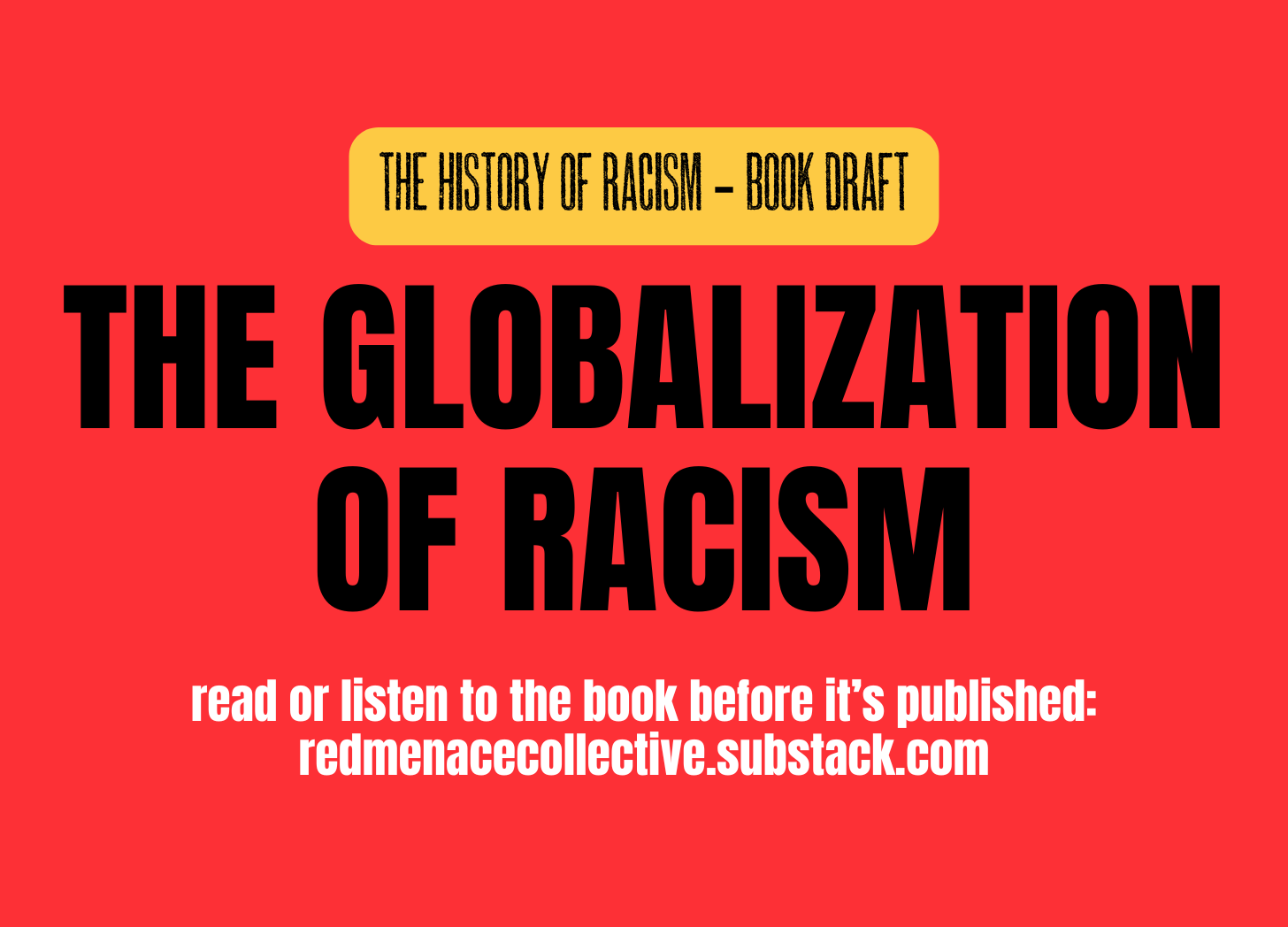The Globalization of Racism
A little side project exploring the origin and evolution of the term "racism" from inception to modern day.
Dive into the origins and evolution of one of the most charged words in history—racism. This side project explores how the term was born, its transformation through ideological and political struggles, and its journey from a concept critiquing oppression to a weapon in modern-day cultural battles, unpacking how "racism" became a driver for leftist ideologies and societal shifts. It's a bold, unapologetic look at the word that reshaped public discourse, from inception to now.
This project will become a short book when it’s done.
Subscribers to The Red Menace Collective will receive a free digital copy of the book and be able to follow along with draft chapters as the book is written.
This is the fifth chapter in the book, and zooms out to look at the global perspective regarding the development of the definition of racism, from post WWII up through the 2000s. It was the most complex chapter to write. All downhill from here!
The Globalization of Racism
The evolution of the definition of racism in the United States did not occur in isolation after World War II; rather, it was shaped by broader global developments, including decolonization, human rights movements, and Cold War geopolitics. As newly independent nations sought to dismantle the racial hierarchies imposed by colonial rule, their struggles provided frameworks that influenced American discussions on race and inequity. At the same time, Cold War rivalries prompted the U.S. to address its own racial injustices to maintain global credibility, particularly in contrast to Soviet claims of racial equality. These global forces pushed the understanding of racism beyond individual prejudice, reframing it as a structural issue embedded in economic and political institutions.
As discussed in a previous chapter, in the aftermath of World War II, the world saw an intensified focus on human rights, culminating in the Universal Declaration of Human Rights (1948). Then, the decolonization movements of the 1950s and 1960s further challenged Western imperial dominance as newly independent nations sought to redefine their identities and address the systemic racial hierarchies imposed by colonial rule. However, these movements didn’t all unfold in a uniform way, and their impact on U.S. civil rights was often indirect. While leaders like Kwame Nkrumah in Ghana and Ahmed Ben Bella in Algeria made powerful statements about systemic inequities, it was figures like Gandhi, with his well-documented influence on Martin Luther King Jr., who had the most direct impact on American civil rights strategies. This shows that decolonization’s influence was sometimes more symbolic or inspirational than directly instructive. Nonetheless, these movements redefined racism as a structural and systemic issue tied to imperialism and economic exploitation.
Continue below the paywall to access the full chapter.
Keep reading with a 7-day free trial
Subscribe to The Red Menace Collective to keep reading this post and get 7 days of free access to the full post archives.





